blog: This Is What God Thinks
 If You Have To Ask... [The Interviews] Part 2: Marco Benevento
If You Have To Ask... [The Interviews] Part 2: Marco Benevento
October 14, 2008
Here's the second installment of the interviews from the "If You Have to Ask…" article that appeared in Issue #28 of State of Mind. You can read that article (page 10) here. See the first installment, with Reed Mathis, here.
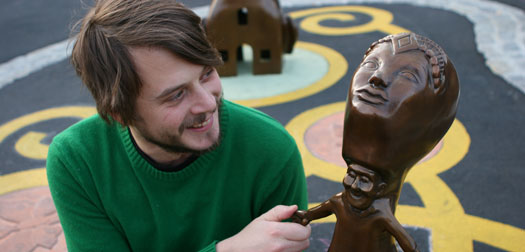
photo by Greg Aiello
As much as this conversation tends to swirl‚ it always seems to land in the court of Marco Benevento. Jazz‚ as a form‚ is obviously much larger than any one musician‚ but if the tide is turning in the jazz world‚ Marco's shooting the curl of the tidal wave. With Live at Tonic‚ he outlined a scene of musicians capable of communicating in a variety of musical languages but who use jazz as the mother tongue. With Invisible Baby‚ he (with Reed Mathis‚ Andrew Barr and Matt Chamberlain) packed this idea into a pill both palatable and psychotropic. Somewhere in between the jam scene and the jazz scene (and the indie rock scene‚ for that matter)‚ Marco's busy baffling critics‚ but‚ more importantly‚ having a lot of fun. I woke him up after a Duo show to talk.
This project I'm working on is kind of sprawling and amorphous at this point‚ but given a lot of the stuff you've been doing this past year‚ and I know you said it's been slow for you and Joe‚ but with Live at Tonic and Invisible Baby‚ it got me thinking about this whole subset of music that's going on right now with you‚ Reed [Mathis]‚ JFJO‚ all these bands that are kind of operating between what would otherwise be considered the jam world and‚ frankly‚ the mainstream jazz world. It seems to me like another whole paradigm is developing‚ and what I've been doing is talking to as many people as I can about the conflicts and advantages of being in such an ill-defined space.
Right.
I guess what it really comes around to is that I see what you're doing with these past two albums as traditional jazz in a really weird way. Jazz‚ not as in the Great American Songbook but jazz as a method -- as an approach to music at large‚ that can be applied to essentially any song structure. That said‚ it may not be perceived that way. I guess I'm trying to evaluate whether or not that's a true perception. For lack of a better question‚ I guess I'm trying to get at exactly what jazz is.
Right. Well‚ let me go back to the first part of your question. We've all -- Reed‚ Andrew [Barr]‚ Joe‚ all my friends and I -- have toured for at least five years‚ plus. Almost ten years in the case of Reed and Andrew. In my case‚ six years with one band. As a musician who enjoys making tons of music with lots of other people‚ it's hard to just limit your world to one band. And that's part of a jazz tradition -- playing with lots of people‚ gigging‚ learning. Over time you've still got love for your band‚ but you get an itch. You're 22‚ then 25‚ then 29‚ and then there you are at 30‚ still sitting in the van with Brian Haas‚ Marc Friedman‚ Brad Barr‚ Joe Russo. In my case‚ it hasn't been just one band‚ but only one other musician‚ one other drummer. Naturally‚ I wanted to start doing some other stuff. Joe has a country-rock band [American Babies]‚ Reed's playing with Tea Leaf Green‚ Andrew Barr's playing with Natalie Merchant. So‚ you start to realize the importance of yourself as a musician‚ while people might only know you from one band. There are just so many other things that I'd like to do -- and I think I speak for the rest of those guys‚ too. Having put out these past two records has made it apparent that I can do a lot of stuff and it's only going to get more interesting.
Part of it for me was that this whole spirit of collaboration really fits with a jazz tradition and has been a bit absent from the mainstream jazz world‚ as well as the improvisational rock world. And that's why these projects have been so interesting for me -- in the records‚ in the residencies‚ and in the collaborations where you're really creating this whole new scene and family of musicians that may not have originally been associated with one another. And it all miraculously clicks.
Wayne Shorter was Wayne Shorter‚ not just the saxophonist in Miles Davis' band and the featured saxophonist in Art Blakey's band. He had such a distinct personality on his own. Same thing with Herbie Hancock and so many others. I think that's what I'm trying to promote by hiring‚ say‚ the bass player from Ween‚ Dave Dreiwitz. Now it's not like‚ "Hey‚ he's just the bass player from Ween or whatever"; he's an amazing individual. And I want to promote this stuff. There's a lot of connection with musical growth‚ too. I've tried to attach myself to people I've really respected along the way. I didn't know Billy Martin‚ but I'd been listening to him since‚ like‚ 1995. I already had a connection with him before I got to play with him.
I'll admit it surprised me to see that you had pulled him on board‚ but it also made sense in a certain way. What those guys [Medeski‚ Martin and Wood] had been doing for the past decade or so is such a part of what you have picked up.
Right. And that's what jazz is for me. It's individuality. It's mixing risk with improvisation. That's what it's all about in my world lately. A bunch of strong individuals hanging out‚ making music. I was hanging out a couple days ago with Brad Barr‚ Andrew Barr‚ Marc Friedman and Nathan Moore actually‚ and I asked Marc‚ "Hey‚ when's your solo album coming out?" And my wife was like‚ "Yeah‚ Marc‚ what's up?" And then she was like‚ "You know‚ Willie Nelson is on over 200 records." That just killed me. I thought Miles Davis had a lot of records‚ but 200? I'm on‚ like‚ eight.
So‚ to digress a bit‚ I think a lot of folks are going to iTunes before they go to concerts‚ and maybe our role as musicians should be to record more. I've personally been feeling really inspired lately‚ having put out Live at Tonic and Invisible Baby‚ to write music‚ and I already feel like I want to go on to the next thing. No one's making money on records these days‚ even the big stars‚ so I feel like as a creative artist I have two outlets -- gigs and albums. I can do a fucking million gigs no problem‚ but not many people are just making a lot of records. I kind of want to go that direction.
Cool. It seems like this whole thing get's more involved the further I go. For example‚ Kevin Calabro [HYENA Records] was saying he's had a pretty tough time bringing something like Invisible Baby not only to a jazz crowd but also to listeners who might prefer indie rock‚ or any listeners who might not be inclined to listen to improvisational music. Considering the songwriting‚ it rides a fence between that jazz method and tradition but also a really poetic indie rock sensibility that can be problematic when it comes to a listenership. It begs the question‚ who are you playing for?
Kevin's got a tough job. It's hard to get people to listen to you as a publicist‚ but it's even harder to get people to sit down and listen to the record‚ then it's thirdly hard to get someone to sit down and write about it‚ especially if it requires someone to reach out to a world that's not used to that material. It's hard to do that with music like Invisible Baby because it seems to cover all bases. David Fricke wrote about me as a power-rock pianist. Downbeat covered it. It's shown up in both rock and jazz magazines‚ and I think that's really powerful. I don't care what they call it; it's just cool that people are checking it out.
That's one thing that's been so compelling about it for me. As a musician‚ you shouldn't be concerned over what box it gets placed in or what publication is covering it‚ but the fact that so many are recognizing it really speaks to how resonant and amorphous the style is. It would be really easy to simply call this stuff "jam" music‚ but that might sell it short. Do you feel conflict over this aspect of it?
No. It doesn't make that much difference to me. So long as I'm doing what I feel is right in my heart‚ I don't care what people call it. They're all right to an extent. The jam thing's a slang word and has gotten a bad rap along the way. A lot of bands that aren't even bands anymore really defined the genre as 20-minute E-jams with mediocre musicianship. That's the stigma‚ and it's only one way to look at it. I mean‚ goddamn‚ John Coltrane jammed with Elvin! Nels Cline jams with Tweedy! It should just be a slang term for getting down and improvising. Unfortunately‚ most people think more of the first definition. I don't care.
Sure‚ and that scene has obviously been really supportive of your work from the start.
Totally. I love the sites‚ venues‚ publications. They've really helped me get where I am. The other day this guy came up to me after a show and gave me a photo of me and John Medeski playing at 10‚000 Lakes Festival a couple years ago. He'd just seen Medeski a couple nights before‚ had him sign the photo‚ and then gave it to me. It was really cool. I was like‚ Wow! That was really nice of him. There are a lot of really nice folks out there that unfortunately get judged way too quickly. It's sort of like profiling.
Or middle school. There is a really scene-y element to the rock world. Do you see this as an obstacle to musicians being able to create really innovative‚ improvisational music?
Well‚ there's no one to blame for any band falling through the cracks. It would be unfortunate for anyone to blame anyone else for their own lack of attention‚ as a band. It might be hard to be operating between the cracks‚ but that should not be the reason for a band or musician not being successful. I don't think there's ever been a band that failed simply because they were hard to define. It might be an obstacle to some ends‚ but not for making the music. People should be happy where they are‚ wherever that is‚ for the fact they're making the music that they're making.
Here's Marco‚ Andrew Barr and Reed Mathis performing "Bus Ride" on Invisible Baby.
Visit Marco Benevento
 Song of the Day: The Low Anthem - "Keep on the Sunny Side"
Song of the Day: The Low Anthem - "Keep on the Sunny Side"
October 14, 2008
Every day there are new albums in the SoM mailbox‚ which is great… and also hard to keep up with. Early last fall I opened a package from a band I'd never heard of‚ The Low Anthem. Everything else fell away as my hands ran over the handmade screenprinted CD case made of cardboard from a cereal box.
If I don't already know the names‚ the CDs that get popped in first are the ones that look good. Usually‚ the casing tells a lot about what's on the inside‚ and this look was classic‚ simple and creative. So I popped it in. And immediately fell in love.
When I opened my eyes this morning‚ brilliant sun was pouring in and the bright fall leaves were flickering. The Low Anthem's version of "Keep on the Sunny Side‚" from What the Crow Brings‚ the album that made a home in my collection last fall‚ was running through my head‚ so here it is -- the Song of the Day.
But wait‚ there's more: recently I went to the mailbox and there was another beautiful handmade screenprinted CD case -- classic‚ simple and creative. The Low Anthem's Oh My God‚ Charlie Darwin. Here's "Charlie Darwin" from that album.
The last time they were in Burlington‚ we recorded a podcast with them‚ and there will also be a Low Anthem feature in the next issue of State of Mind. So keep your eyes… out.
The Low Anthem - "Keep On the Sunny Side"
The Low Anthem - "Charlie Darwin"
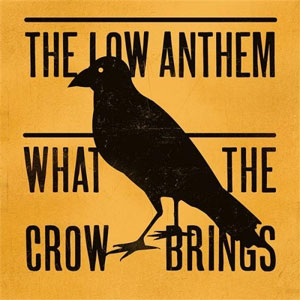
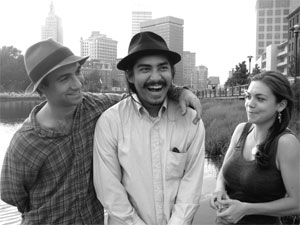
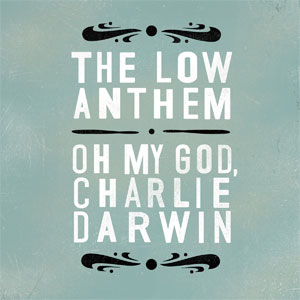
Visit The Low Anthem
 Win a Signed Copy of Brad Barr's New Album‚ The Fall Apartment
Win a Signed Copy of Brad Barr's New Album‚ The Fall Apartment
October 12, 2008
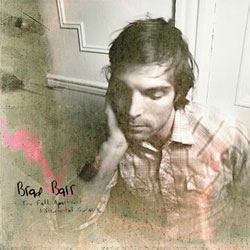 State of Mind and Tompkins Square Records are giving away signed copies of Brad Barr's new solo instrumental album‚ The Fall Apartment. Just fill out the form below by Oct. 17 and cross your fingers.
State of Mind and Tompkins Square Records are giving away signed copies of Brad Barr's new solo instrumental album‚ The Fall Apartment. Just fill out the form below by Oct. 17 and cross your fingers.
As a member of Northeast-based band The Slip‚ Brad's guitar prowess has always been notable‚ but his true gifts and distinct musical voice are on full display throughout this solo guitar album. A heady set of original compositions is complimented by such diverse covers as "Maria La O" by legendary Cuban musician Ernesto Lecuona‚ Kurt Cobain's "Heart Shaped Box‚" and Le Trio Ferret's "Gin Gin." The introspective tone of the album recalls such overlooked loner guitar gems as Lenny Breau's Cabin Fever or Richard Crandell's The Flower of Our Youth‚ whilst staking out a thoroughly modern approach to solo guitar here in the late '00s.
Click here to read our interview with Brad‚ where he talks about his experiences and breakthroughs while making The Fall Apartment.
This contest is now closed.
 Song of the Day: Ron Carter - "Uptown Conversation"
Song of the Day: Ron Carter - "Uptown Conversation"
October 10, 2008
One of my favorite interviews was with the legendary bassist Ron Carter. The interview ran in the Aug 2006 issue of State of Mind, and is now available online - check it out.
The song of the day is the title track from Ron's 1969 release, Uptown Conversation. I was a freshman in college the first time I heard this song, and I thought it was the coolest, slickest music I ever heard.
Of course, Ron Carter has been on thousands of albums - some of my favorite albums ever, Ron is playing bass. Check out some of Bill Frisell's favorites at the end of the interview.
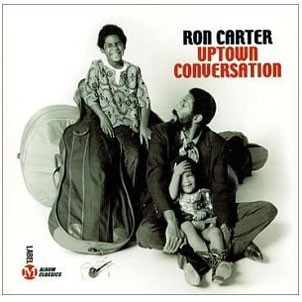
Visit Ron Carter
 Mocean Worker on "That One"
Mocean Worker on "That One"
October 9, 2008
"THAT one" is not going over so well with people, including Mocean Worker.
 If You Have To Ask... [The Interviews] Part 2: Marco Benevento
If You Have To Ask... [The Interviews] Part 2: Marco BeneventoOctober 14, 2008

photo by Greg Aiello
As much as this conversation tends to swirl‚ it always seems to land in the court of Marco Benevento. Jazz‚ as a form‚ is obviously much larger than any one musician‚ but if the tide is turning in the jazz world‚ Marco's shooting the curl of the tidal wave. With Live at Tonic‚ he outlined a scene of musicians capable of communicating in a variety of musical languages but who use jazz as the mother tongue. With Invisible Baby‚ he (with Reed Mathis‚ Andrew Barr and Matt Chamberlain) packed this idea into a pill both palatable and psychotropic. Somewhere in between the jam scene and the jazz scene (and the indie rock scene‚ for that matter)‚ Marco's busy baffling critics‚ but‚ more importantly‚ having a lot of fun. I woke him up after a Duo show to talk.
This project I'm working on is kind of sprawling and amorphous at this point‚ but given a lot of the stuff you've been doing this past year‚ and I know you said it's been slow for you and Joe‚ but with Live at Tonic and Invisible Baby‚ it got me thinking about this whole subset of music that's going on right now with you‚ Reed [Mathis]‚ JFJO‚ all these bands that are kind of operating between what would otherwise be considered the jam world and‚ frankly‚ the mainstream jazz world. It seems to me like another whole paradigm is developing‚ and what I've been doing is talking to as many people as I can about the conflicts and advantages of being in such an ill-defined space.
Right.
I guess what it really comes around to is that I see what you're doing with these past two albums as traditional jazz in a really weird way. Jazz‚ not as in the Great American Songbook but jazz as a method -- as an approach to music at large‚ that can be applied to essentially any song structure. That said‚ it may not be perceived that way. I guess I'm trying to evaluate whether or not that's a true perception. For lack of a better question‚ I guess I'm trying to get at exactly what jazz is.
Right. Well‚ let me go back to the first part of your question. We've all -- Reed‚ Andrew [Barr]‚ Joe‚ all my friends and I -- have toured for at least five years‚ plus. Almost ten years in the case of Reed and Andrew. In my case‚ six years with one band. As a musician who enjoys making tons of music with lots of other people‚ it's hard to just limit your world to one band. And that's part of a jazz tradition -- playing with lots of people‚ gigging‚ learning. Over time you've still got love for your band‚ but you get an itch. You're 22‚ then 25‚ then 29‚ and then there you are at 30‚ still sitting in the van with Brian Haas‚ Marc Friedman‚ Brad Barr‚ Joe Russo. In my case‚ it hasn't been just one band‚ but only one other musician‚ one other drummer. Naturally‚ I wanted to start doing some other stuff. Joe has a country-rock band [American Babies]‚ Reed's playing with Tea Leaf Green‚ Andrew Barr's playing with Natalie Merchant. So‚ you start to realize the importance of yourself as a musician‚ while people might only know you from one band. There are just so many other things that I'd like to do -- and I think I speak for the rest of those guys‚ too. Having put out these past two records has made it apparent that I can do a lot of stuff and it's only going to get more interesting.
Part of it for me was that this whole spirit of collaboration really fits with a jazz tradition and has been a bit absent from the mainstream jazz world‚ as well as the improvisational rock world. And that's why these projects have been so interesting for me -- in the records‚ in the residencies‚ and in the collaborations where you're really creating this whole new scene and family of musicians that may not have originally been associated with one another. And it all miraculously clicks.
Wayne Shorter was Wayne Shorter‚ not just the saxophonist in Miles Davis' band and the featured saxophonist in Art Blakey's band. He had such a distinct personality on his own. Same thing with Herbie Hancock and so many others. I think that's what I'm trying to promote by hiring‚ say‚ the bass player from Ween‚ Dave Dreiwitz. Now it's not like‚ "Hey‚ he's just the bass player from Ween or whatever"; he's an amazing individual. And I want to promote this stuff. There's a lot of connection with musical growth‚ too. I've tried to attach myself to people I've really respected along the way. I didn't know Billy Martin‚ but I'd been listening to him since‚ like‚ 1995. I already had a connection with him before I got to play with him.
I'll admit it surprised me to see that you had pulled him on board‚ but it also made sense in a certain way. What those guys [Medeski‚ Martin and Wood] had been doing for the past decade or so is such a part of what you have picked up.
Right. And that's what jazz is for me. It's individuality. It's mixing risk with improvisation. That's what it's all about in my world lately. A bunch of strong individuals hanging out‚ making music. I was hanging out a couple days ago with Brad Barr‚ Andrew Barr‚ Marc Friedman and Nathan Moore actually‚ and I asked Marc‚ "Hey‚ when's your solo album coming out?" And my wife was like‚ "Yeah‚ Marc‚ what's up?" And then she was like‚ "You know‚ Willie Nelson is on over 200 records." That just killed me. I thought Miles Davis had a lot of records‚ but 200? I'm on‚ like‚ eight.
So‚ to digress a bit‚ I think a lot of folks are going to iTunes before they go to concerts‚ and maybe our role as musicians should be to record more. I've personally been feeling really inspired lately‚ having put out Live at Tonic and Invisible Baby‚ to write music‚ and I already feel like I want to go on to the next thing. No one's making money on records these days‚ even the big stars‚ so I feel like as a creative artist I have two outlets -- gigs and albums. I can do a fucking million gigs no problem‚ but not many people are just making a lot of records. I kind of want to go that direction.
Cool. It seems like this whole thing get's more involved the further I go. For example‚ Kevin Calabro [HYENA Records] was saying he's had a pretty tough time bringing something like Invisible Baby not only to a jazz crowd but also to listeners who might prefer indie rock‚ or any listeners who might not be inclined to listen to improvisational music. Considering the songwriting‚ it rides a fence between that jazz method and tradition but also a really poetic indie rock sensibility that can be problematic when it comes to a listenership. It begs the question‚ who are you playing for?
Kevin's got a tough job. It's hard to get people to listen to you as a publicist‚ but it's even harder to get people to sit down and listen to the record‚ then it's thirdly hard to get someone to sit down and write about it‚ especially if it requires someone to reach out to a world that's not used to that material. It's hard to do that with music like Invisible Baby because it seems to cover all bases. David Fricke wrote about me as a power-rock pianist. Downbeat covered it. It's shown up in both rock and jazz magazines‚ and I think that's really powerful. I don't care what they call it; it's just cool that people are checking it out.
That's one thing that's been so compelling about it for me. As a musician‚ you shouldn't be concerned over what box it gets placed in or what publication is covering it‚ but the fact that so many are recognizing it really speaks to how resonant and amorphous the style is. It would be really easy to simply call this stuff "jam" music‚ but that might sell it short. Do you feel conflict over this aspect of it?
No. It doesn't make that much difference to me. So long as I'm doing what I feel is right in my heart‚ I don't care what people call it. They're all right to an extent. The jam thing's a slang word and has gotten a bad rap along the way. A lot of bands that aren't even bands anymore really defined the genre as 20-minute E-jams with mediocre musicianship. That's the stigma‚ and it's only one way to look at it. I mean‚ goddamn‚ John Coltrane jammed with Elvin! Nels Cline jams with Tweedy! It should just be a slang term for getting down and improvising. Unfortunately‚ most people think more of the first definition. I don't care.
Sure‚ and that scene has obviously been really supportive of your work from the start.
Totally. I love the sites‚ venues‚ publications. They've really helped me get where I am. The other day this guy came up to me after a show and gave me a photo of me and John Medeski playing at 10‚000 Lakes Festival a couple years ago. He'd just seen Medeski a couple nights before‚ had him sign the photo‚ and then gave it to me. It was really cool. I was like‚ Wow! That was really nice of him. There are a lot of really nice folks out there that unfortunately get judged way too quickly. It's sort of like profiling.
Or middle school. There is a really scene-y element to the rock world. Do you see this as an obstacle to musicians being able to create really innovative‚ improvisational music?
Well‚ there's no one to blame for any band falling through the cracks. It would be unfortunate for anyone to blame anyone else for their own lack of attention‚ as a band. It might be hard to be operating between the cracks‚ but that should not be the reason for a band or musician not being successful. I don't think there's ever been a band that failed simply because they were hard to define. It might be an obstacle to some ends‚ but not for making the music. People should be happy where they are‚ wherever that is‚ for the fact they're making the music that they're making.
Here's Marco‚ Andrew Barr and Reed Mathis performing "Bus Ride" on Invisible Baby.
Visit Marco Benevento
 Song of the Day: The Low Anthem - "Keep on the Sunny Side"
Song of the Day: The Low Anthem - "Keep on the Sunny Side"October 14, 2008
If I don't already know the names‚ the CDs that get popped in first are the ones that look good. Usually‚ the casing tells a lot about what's on the inside‚ and this look was classic‚ simple and creative. So I popped it in. And immediately fell in love.
When I opened my eyes this morning‚ brilliant sun was pouring in and the bright fall leaves were flickering. The Low Anthem's version of "Keep on the Sunny Side‚" from What the Crow Brings‚ the album that made a home in my collection last fall‚ was running through my head‚ so here it is -- the Song of the Day.
But wait‚ there's more: recently I went to the mailbox and there was another beautiful handmade screenprinted CD case -- classic‚ simple and creative. The Low Anthem's Oh My God‚ Charlie Darwin. Here's "Charlie Darwin" from that album.
The last time they were in Burlington‚ we recorded a podcast with them‚ and there will also be a Low Anthem feature in the next issue of State of Mind. So keep your eyes… out.
The Low Anthem - "Keep On the Sunny Side"
The Low Anthem - "Charlie Darwin"



Visit The Low Anthem
 Win a Signed Copy of Brad Barr's New Album‚ The Fall Apartment
Win a Signed Copy of Brad Barr's New Album‚ The Fall ApartmentOctober 12, 2008
 State of Mind and Tompkins Square Records are giving away signed copies of Brad Barr's new solo instrumental album‚ The Fall Apartment. Just fill out the form below by Oct. 17 and cross your fingers.
State of Mind and Tompkins Square Records are giving away signed copies of Brad Barr's new solo instrumental album‚ The Fall Apartment. Just fill out the form below by Oct. 17 and cross your fingers.
As a member of Northeast-based band The Slip‚ Brad's guitar prowess has always been notable‚ but his true gifts and distinct musical voice are on full display throughout this solo guitar album. A heady set of original compositions is complimented by such diverse covers as "Maria La O" by legendary Cuban musician Ernesto Lecuona‚ Kurt Cobain's "Heart Shaped Box‚" and Le Trio Ferret's "Gin Gin." The introspective tone of the album recalls such overlooked loner guitar gems as Lenny Breau's Cabin Fever or Richard Crandell's The Flower of Our Youth‚ whilst staking out a thoroughly modern approach to solo guitar here in the late '00s.
Click here to read our interview with Brad‚ where he talks about his experiences and breakthroughs while making The Fall Apartment.
This contest is now closed.
 Song of the Day: Ron Carter - "Uptown Conversation"
Song of the Day: Ron Carter - "Uptown Conversation"October 10, 2008
The song of the day is the title track from Ron's 1969 release, Uptown Conversation. I was a freshman in college the first time I heard this song, and I thought it was the coolest, slickest music I ever heard.
Of course, Ron Carter has been on thousands of albums - some of my favorite albums ever, Ron is playing bass. Check out some of Bill Frisell's favorites at the end of the interview.

Visit Ron Carter
 Mocean Worker on "That One"
Mocean Worker on "That One"October 9, 2008
new to state of mind
Shows: moe.
Shows: Yonder Mountain String Band
Shows: Grand Point North 2014
Shows: Catskill Chill 2014
Shows: moe.down 15
Shows: Gov't Mule
Shows: Umphrey's McGee
Shows: Newport Folk Festival 2014
Shows: Widespread Panic
Albums: Phish - Fuego
Shows: moe.
Shows: Yonder Mountain String Band
Shows: Grand Point North 2014
Shows: Catskill Chill 2014
Shows: moe.down 15
Shows: Gov't Mule
Shows: Umphrey's McGee
Shows: Newport Folk Festival 2014
Shows: Widespread Panic
Albums: Phish - Fuego
random awesomeness
Blog: Best Songs of 2012: Eastbound Jesus - "Time Wasting"
Shows: Cake
Shows: Jeff Mangum
Shows: King Sunny Ade and His African Beats
Shows: My Morning Jacket
Albums: Robert Glasper - In My Element
Blog: State of Mind Video This Weekend: What was your favorite album of 2009? Join us...
Shows: Trey Anastasio
Shows: Death and Rough Francis
Shows: snoe.down 2011
Blog: Best Songs of 2012: Eastbound Jesus - "Time Wasting"
Shows: Cake
Shows: Jeff Mangum
Shows: King Sunny Ade and His African Beats
Shows: My Morning Jacket
Albums: Robert Glasper - In My Element
Blog: State of Mind Video This Weekend: What was your favorite album of 2009? Join us...
Shows: Trey Anastasio
Shows: Death and Rough Francis
Shows: snoe.down 2011
